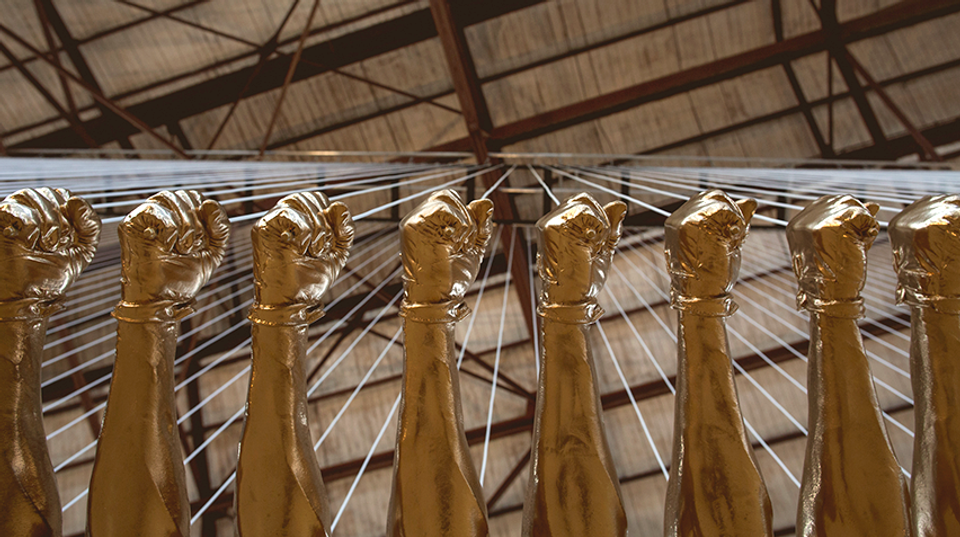Glenn Kaino: Bridge

Installation photography of Glenn Kaino: Bridge, Smithsonian American Art Museum, 2024; Photos by Albert Ting
One of the most memorable images from the 1968 Olympic Games in Mexico City is the symbolic act of protest by Tommie Smith, winner of the men’s 200-meter race. During the medal ceremony, Smith bowed his head and raised his fist as an assertion of Black solidarity in the fight for human rights. Decades later, artist Glenn Kaino collaborated with Smith to create the monumental sculpture Bridge.
Description
Glenn Kaino’s powerful aerial sculpture Bridge is comprised of 200 golden arms hanging from the ceiling of SAAM’s Luce Foundation Center. Each is a casting of the outstretched right arm of Tommie Smith, the American winner of the men’s 200-meter race at the 1968 Olympic Games in Mexico City. During the medal ceremony, Smith bowed his head and raised his black-gloved fist in a symbolic act of protest. Coming at a moment of turmoil in the United States, where public unrest flared over the war in Vietnam, racial discrimination and inequality, and the assassinations of Martin Luther King Jr. and Robert F. Kennedy, his gesture was an assertion of Black solidarity in the fight for human rights. Echoed by the American bronze medalist John Carlos, it inspired social causes around the world and irrevocably changed Smith’s own life.
Kaino, a Los Angeles–based conceptual artist, created Bridge (2013-2014) as part of an ongoing collaboration with Smith and as a reflection on the power of the athlete’s gesture about 50 years after it occurred. Nearly 100 feet long, the sculpture reaches both backward and forward, acting as bridge through time and space into the present. It serves as a monument to one person’s action and its aftermath, evoking the ways that even small acts can ripple through time and alter the course of history.
The installation is organized by Sarah Newman, the James Dicke Curator of Contemporary Art at the Smithsonian American Art Museum.
Visiting Information
Videos
SAAM Stories
















